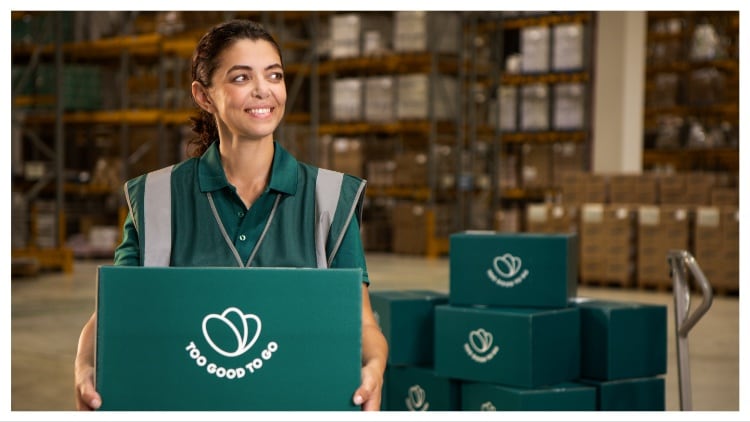Key takeaways:
- Snack giants like Mondelēz, PepsiCo and Nestlé are doubling down on ESG reporting even as Trump tries to roll back disclosure rules.
- The reports serve as credibility armor in a market where consumers, investors and regulators demand proof of progress.
- For Big Food, ESG is no longer philanthropy or optics – it’s survival in a global credibility war.
When Mondelēz International dropped its 2024 Snacking Made Right report earlier this month, the usual metrics rolled out: 40,000 volunteer hours; $48 million in donations; disaster relief from Brazil to Ukraine; and a string of mentoring and food bank projects. On paper, it’s textbook ESG – the polished evidence the Oreo and Cadbury maker’s more than just a snack machine.
But the timing matters as much as the content. This report landed in the same year Donald Trump returned to the White House promising to dismantle ESG frameworks, rolling back Department of Labor rules that let pension funds weigh social and environmental factors and freezing new SEC disclosure requirements.
Against that backdrop, Mondelēz’s glossy disclosure reads like defiance. The company’s not ducking ESG – it’s leaning into it.
The ESG report nobody asked for

That posture’s not unique. Across the sector, Big Food’s making ESG reports central to its public positioning, even as the political climate in the US shifts hostile.
Nestlé’s latest Creating Shared Value report runs to more than 300 pages, brimming with commitments on cocoa sourcing, nutrition reformulation and water stewardship. PepsiCo’s ESG Summary is heavy with regenerative agriculture targets and packaging pledges. Unilever keeps framing its portfolio around ‘brands with purpose’, despite scaling back some targets after shareholder pushback.
These reports aren’t just window dressing for investors anymore. They’ve become reputational armor in a world where consumers, activists and regulators interrogate every omission. That’s why Big Food keeps producing them, even as Trump’s administration rolls back disclosure requirements. Companies know the numbers matter less than the posture – and the posture matters to investors as much as shoppers.
That’s the other truth: Wall Street and global capital markets haven’t abandoned ESG. BlackRock, State Street and other asset managers still demand disclosures, while Europe pushes ahead with mandatory CSRD rules and the ISSB’s new standards go global. Even if Washington backs off, Brussels and Singapore are moving the opposite way.
Trump may call ESG a scam, but snack makers are acting like the opposite’s true: that in today’s market, ESG’s survival.
Cookies, cocoa and contradictions

Of course, the contradictions are glaring. Mondelēz wants credit for funding regenerative agriculture in Estonia and small-shop financing in Colombia, but its core portfolio’s still Oreos, Ritz and Milka bars. Nestlé boasts about tackling child labor in cocoa, yet lawsuits and watchdog reports continue to question whether its supply chain is free of abuses.
PepsiCo’s soil carbon pledges sound bold, yet investors and campaigners have pressed the company on how those gains balance with the scale of its snack portfolio, especially after revisions to some of its climate and plastic targets.
Unilever’s glossy narratives about climate action and circular packaging also face scrutiny, with analysts pointing out that some of its environmental targets have been scaled back in recent years. Hershey and Mars highlight fair-trade schemes and cocoa community programs in their reports, yet ongoing litigation and NGO reviews continue to raise questions about child labor risks in West Africa.
Even General Mills and Kellogg’s – both active in regenerative agriculture pilots across the US Midwest – face questions from independent monitors about whether pilot programs can truly offset the footprint of sprawling packaged food portfolios.
This is the paradox ESG reports can’t resolve. The stories are real – farmers do get access to carbon markets, employees do clean rivers, disaster victims do receive aid. But the scale of those efforts is always measured against the scale of global food empires, and the math rarely balances.
From checkbooks to culture wars

One clear shift across Big Food’s the pivot from donations to culture. Mondelēz has nearly tripled its volunteering hours in three years. PepsiCo’s report centers on supplier partnerships and regenerative farming rather than charitable giving. Nestlé highlights nutrition reformulation as a core business function, not a side project. Unilever keeps putting employees and ‘brands with purpose’ at the center of its narrative.
Strip back the spin and the message is simple – ESG’s no longer extra credit. It has to be baked into the culture, not bolted onto the balance sheet. That’s the only way these companies believe they can withstand scrutiny and keep justifying their place in the public’s diet.
It’s also a defensive move. By politicizing ESG, Trump may have made it harder for companies to hide behind compliance. If the government says ESG’s irrelevant, then every glossy PDF becomes a voluntary act and the question becomes: do you believe us?
Snackdown verdict: Survival, not virtue

So what does Mondelēz’s report really tell us? That the Oreo maker knows it can’t retreat, even when Washington signals that ESG’s out of fashion. That it sees credibility as a more precious commodity than regulatory relief. And that it, along with Nestlé, PepsiCo, Unilever and the rest of Big Food, is treating ESG not as philanthropy but as contested terrain in the fight for trust.
Trump may want ESG gone. But Big Food knows better. In a world of fragile consumer loyalty, relentless investor pressure and tightening global regulation, walking away from ESG would be more dangerous than leaning in. That’s why the snack giants are still publishing glossy reports, still stacking up volunteer hours, still betting on regenerative farming and packaging pledges.
Because in 2025, ESG’s not about virtue. It’s about survival.
ESG scorecard, 2024
The numbers tell their own story, proving that Big Food’s not retreating from ESG but doubling down.
Mondelēz reports 91% of the cocoa in its chocolate brands sourced through Cocoa Life, nearly 178,000 farmers trained in good agricultural practices and 10.6 million shade trees distributed in 2024. Employees also racked up 40,000 hours of volunteering, a jump from 29,000 in 2023.
PepsiCo has put 3.5 million acres into regenerative farming, reached 89% renewable electricity in its own operations and claims to have replenished 24 billion liters of water in high-risk areas. It also says 67% of its beverages are under 100 calories per 12 oz serving and 77% of snacks now meet sodium goals.
Unilever logged €60.8 billion in turnover last year, but still devoted space in its annual report to emissions targets, circular packaging and sustainable sourcing.
Hershey and Mars continue to expand community development and cocoa certification programs, while General Mills and Kellogg’s are piloting regenerative agriculture across the US Midwest.
Together, the reports look impressive. Together, they also show why Trump’s dismissal of ESG as a ‘woke scam’ misses the mark – for the snack giants, these disclosures aren’t optional. They’re survival strategies in a global credibility war.



